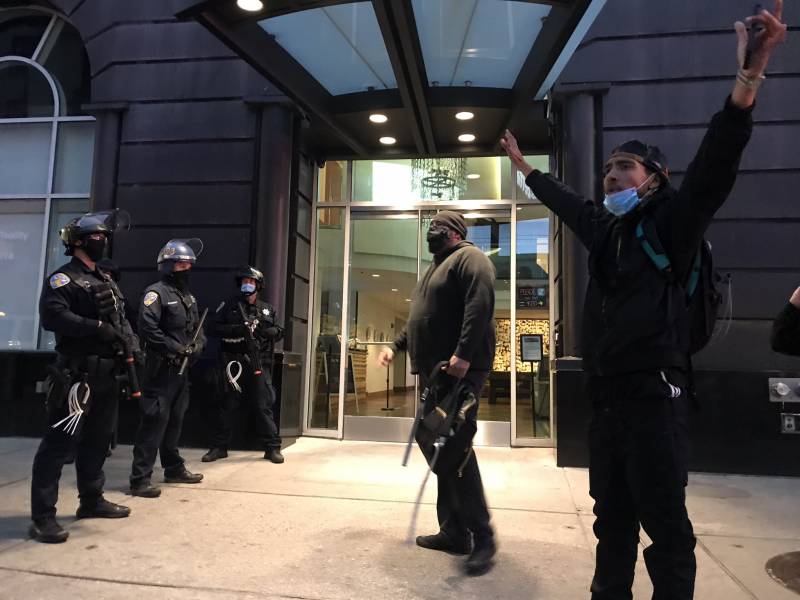Updated 11:45 p.m. Saturday
San Francisco Mayor London Breed on Saturday night declared a citywide curfew in response to increasingly destructive demonstrations.
The 8 p.m. to 5 a.m. curfew will be effective immediately, she said in a late-night briefing, adding that she has also been in touch with Gov. Gavin Newsom about having the National Guard on standby.
Breed said that while she understood “the hurt and the pain” that residents are feeling about the death of George Floyd — a black man killed by police in Minneapolis last week — vandalism and destruction in the city would “not be tolerated.”
“To be clear, this is the last thing that I wanna do as mayor. I want peace, I want protest, but I don’t want the kind of violence and crime that we see playing itself across the streets of our city to continue,” Breed said. “And we have a responsibility to deal with it and that’s exactly what we’re going to do.”

